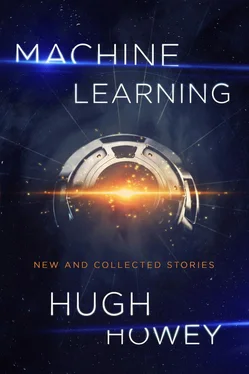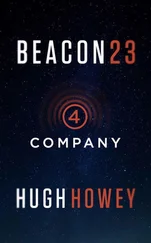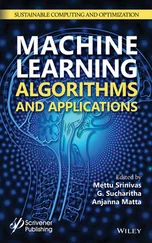The Gladiator Nationals are being held in Detroit for the first time in their nine-year history—a nod to the revitalization of the local industry. Ironic, really. A town that fought the hell out of automation has become one of the largest builders of robots in the world. Robots building robots. But the factory floors still need trainers, designers, and programmers. High-tech jobs coming to rescue a low-wage and idle workforce. They say downtown is booming again, but the place looks like absolute squalor to me. I guess you had to be here for the really bad times to appreciate this.
Our trailer is parked on the stadium infield. A security bot on tank treads—built by one of our competitors—scans Peter’s ID and waves us through. We head for the two semis with Max’s gold-and-blue-jowled image painted across the sides. It looks like the robot is smiling—a bit of artistic license. It gets the parents honking at us on the freeway and the kids pumping their fists out the windows.
Reaching the finals two years ago secured us the DARPA contract that paid for the second trailer. We build war machines that entertain the masses, and then the tech flows down to factories like those here in Detroit—where servants are assembled for the wealthy, health-care bots for the infirmed, and mail-order sex bots that go mostly to Russia. A lust for violence, in some roundabout way, funds other lusts. All I know is that with one more trip to the finals, the debt Peter saddled me with is history. I concentrate on this as we cross the oil-splattered arena. The infield is deathly quiet, the stands empty. Assholes everywhere getting decent sleep.
“—which was the last thing we tried,” Peter says. He’s been running over their diagnostics since we left the hotel.
“What you’re describing sounds like a processor issue,” I say. “Maybe a short. Not software.”
“It’s not hardware,” he says. “We don’t think.”
Greenie is standing on the ramp of trailer 1, puffing on a vape. His eyes are wild. “Morning, Greenie,” I tell him. I hand him a cup of coffee from the drive-through, and he doesn’t thank me, doesn’t say anything, just flips the plastic lid off the cup with his thumb and takes a loud sip. He’s back to staring into the distance as I follow Peter into the trailer.
“You kids need to catch some winks,” I tell Peter. “Seriously.”
The trailer is a wreck, even by post-bout standards. The overhead hood is running, a network of fans sucking the air out of the trailer and keeping it cool. Max is in his power harness at the far end, his cameras tracking our approach. “Morning, Max,” I tell him.
“Good morning, Samantha.”
Max lifts an arm to wave. Neither of his hands are installed; his arms terminate in the universal connectors Peter and I designed together a lifetime ago. His pincers and his buzz saw sit on the workbench beside him. Peter has already explained the sequence I should expect, and my brain is whirring to make sense of it.
“How’re you feeling, Max?”
“Operational,” he says. I look over the monitors and see his charge level and error readouts. Looks like the boys fixed his servos from the semifinal bout and got his armor welded back together. The replacement shoulder looks good, and a brand-new set of legs has been bolted on, the gleaming paint on Max’s lower half a contrast to his charred torso. I notice the boys haven’t gotten around to plugging in the legs yet. Too busy with this supposed glitch.
As I look over Max, his wounds and welds provide a play-by-play of his last brutal fight—one of the most violent I’ve ever seen. The Berkeley team that lost will be starting from scratch. By the end of the bout, Max had to drag himself across the arena with the one arm he had left before pummeling his incapacitated opponent into metal shavings. When the victory gun sounded, we had to do a remote kill to shut him down. The way he was twitching, someone would’ve gotten hurt trying to get close enough to shout over the screeches of grinding and twisting metal. The slick of oil from that bout took two hours to mop up before the next one could start.
“You look good,” I tell Max, which is my way of complimenting Peter’s repair work without complimenting Peter directly. Greenie joins us as I lift Max’s pincer from the workbench. “Let me give you a hand,” I tell Max, an old joke between us.
I swear his arm twitches as I say this. I lift the pincer attachment toward the stub of his forearm, but before I can get it attached, Max’s arm slides gently out of the way.
“See?” Peter says.
I barely hear him. My pulse is pounding—something between surprise and anger. It’s a shameful feeling, one I recognize from being a mom. It’s the sudden lack of compliance from a person who normally does what they’re told. It’s a rejection of my authority.
“Max, don’t move,” I say.
The arm freezes. I lift the pincers toward the attachment again, and his arm jitters away from me.
“Shut him down,” I tell Peter.
Greenie is closer, so he hits the red shutoff, but not before Max starts to say something. Before the words can even form, his cameras iris shut and his arms sag to his side.
“This next bit will really piss you off, ” Peter says. He grabs the buzz saw and attaches it to Max’s left arm while I click the pincers onto the right. I reach for the power.
“Might want to stand back first,” Greenie warns.
I take a step back before hitting the power. Max whirs to life and does just what Peter described in the car: he detaches both his arms. The attachments slam to the ground, the pincer attachment rolling toward my feet.
Before I can ask Max what the hell he’s doing, before I can get to the monitors to see what lines of code—what routines—just ran, he does something even crazier than jettisoning his attachments.
“I’m sorry,” he says.
The fucker knows he’s doing something wrong.
“It’s not the safety overrides,” I say.
“Nope.” Greenie has his head in his hands. We’ve been going over possibilities for two hours. Two hours for me—the boys have been at this for nearly twelve. I cycle through the code Max has been running, and none of it makes sense. He’s got tactical routines and defense modules engaging amid all the clutter of his parallel processors, but he’s hard-set into maintenance mode. Those routines shouldn’t be firing at all. And I can see why Peter warned me not to put any live-fire attachments on. The last thing we need is Max shooting up a $4 million trailer.
“I’ve got it,” I say. It’s at least the twentieth time I’ve said this. The boys shoot me down every time. “It’s a hack. The SoCal team knows they’re getting stomped in two days. They did this.”
“If they did, they’re smarter than me,” Greenie says. “And they aren’t smarter than me.”
“We looked for any foreign code,” Peter says. “Every diagnostic tool and virus check comes back clean.”
I look up at Max, who’s watching us as we try to figure out what’s wrong with him. I project too much into the guy, read into his body language whatever I’m feeling or whatever I expect him to feel. Right now, I imagine him as being sad. Like he knows he’s disappointing me. But to someone else—a stranger—he probably looks like a menacing hulk of a destroyer. Eight feet tall, angled steel, pistons for joints, pockmarked armor. We see what we expect to see, I guess.
“Max, why won’t you keep your hands on?” I ask him. Between the three of us, we’ve asked him variations of this a hundred times.
“I don’t want them there,” he says. It’s as useful as a kid saying they want chocolate because they like chocolate. Circular reasoning in the tightest of loops.
Читать дальше












